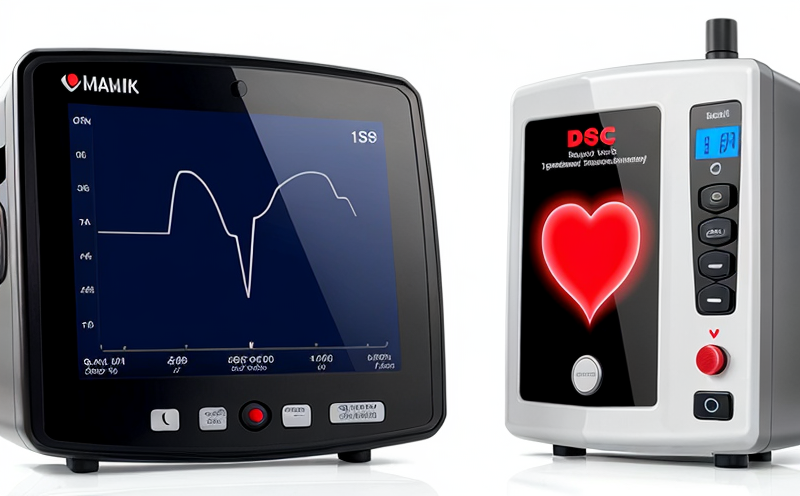ISO 5840 Transcatheter Heart Valve Fatigue Testing
The ISO 5840 series of standards provides essential guidelines for the testing and qualification of transcatheter heart valves (TAVs), which are medical devices designed to replace damaged or malfunctioning natural heart valves. These valves are inserted into the patient via a catheter, eliminating the need for open-heart surgery in many cases. The fatigue testing outlined by ISO 5840 is critical as it ensures that TAVs can withstand the cyclic loading and stress they will encounter during normal operation over an extended period.
The process of fatigue testing involves subjecting specimens to a repetitive load cycle, simulating real-world conditions such as the opening and closing of the valve within the patient's body. This method assesses how well the TAV can endure multiple cycles without failing or exhibiting signs of degradation. The test is particularly important for ensuring that the device remains effective and safe over time.
The fatigue testing procedure adheres to international standards, including ISO 5840-1, which specifies the general requirements for valve testing, and ISO 5840-2, which provides specific details on the fatigue test. These standards ensure consistency and reliability in the testing process across different laboratories.
During the fatigue testing of TAVs, specimens are typically subjected to a range of load cycles that replicate the stresses experienced during normal valve function. This includes high-pressure conditions encountered when the valve is open and closed repeatedly over time. The test aims to identify any potential weaknesses or areas where failure might occur under sustained use.
The testing apparatus used for ISO 5840 fatigue testing includes specialized equipment capable of applying controlled cyclic loading to the specimen. The system must be able to simulate real-world conditions accurately, including variations in pressure and flow rates. This ensures that the test results are valid and can predict how the valve will perform under actual use.
Specimen preparation for ISO 5840 fatigue testing is critical to ensure accurate and reliable test results. Prior to testing, specimens undergo thorough inspection and cleaning processes to remove any contaminants or residues that could affect the outcome of the test. The specimens are then mounted onto the testing apparatus in a manner consistent with how they would be implanted in the patient.
Testing parameters for ISO 5840 fatigue tests are meticulously controlled to ensure consistency and repeatability. Key factors include the number of cycles, load magnitudes, and duration between each cycle. These parameters are chosen based on the specific requirements outlined in the relevant standards. The testing process is closely monitored using advanced instrumentation that records all critical data points throughout the test.
Upon completion of the fatigue test, extensive analysis of the specimen's performance is conducted. This includes evaluating the integrity and functionality of the valve after undergoing the specified number of cycles. Any signs of wear, deformation, or failure are noted and documented. These results provide valuable insights into the durability and reliability of the TAV.
The importance of ISO 5840 fatigue testing cannot be overstated in ensuring that transcatheter heart valves meet stringent quality and safety standards. By adhering to these international guidelines, manufacturers can produce devices that are safe and effective for patients undergoing minimally invasive procedures.
- Accurate simulation of real-world conditions
- Meticulous specimen preparation
- Controlled testing parameters
- Advanced instrumentation for data recording
- Comprehensive analysis of test results
Benefits
The benefits of ISO 5840 fatigue testing extend beyond just ensuring compliance with international standards. By subjecting TAVs to rigorous testing, manufacturers can identify potential weaknesses early in the development process, allowing for timely corrections and improvements. This not only enhances product quality but also reduces the risk of costly recalls post-market.
For quality managers and compliance officers, ISO 5840 fatigue testing offers a robust framework for ensuring that TAVs meet all regulatory requirements. The testing process provides clear guidelines on how to conduct tests consistently across different laboratories, reducing variability in results.
R&D engineers involved in the design and development of TAVs benefit significantly from this rigorous testing regimen. It allows them to refine their designs based on real-world data, ensuring that the final products are both safe and effective.
For procurement teams, ISO 5840 fatigue testing ensures that only high-quality components are used in the manufacturing process. This not only enhances product quality but also supports the overall integrity of the supply chain.
Eurolab Advantages
Eurolab offers unparalleled expertise and experience in conducting ISO 5840 fatigue testing for transcatheter heart valves. Our team of highly qualified professionals ensures that every test is conducted with precision and accuracy, adhering strictly to international standards.
- Comprehensive Testing Capabilities: Eurolab's state-of-the-art facilities are equipped with the latest technology and equipment necessary for conducting ISO 5840 fatigue testing. This includes specialized testing apparatus capable of simulating real-world conditions accurately.
- Experienced Professionals: Our team consists of experts in medical device testing, ensuring that each test is conducted by individuals who are well-versed in the latest techniques and methodologies.
- Consistent Results: Eurolab's rigorous quality control measures ensure consistent and reliable results across all tests. This consistency allows for easier comparison of data over time and between different batches or versions of the same product.
- Compliance with International Standards: Our testing protocols are designed to meet the highest international standards, ensuring that every test conducted is compliant with relevant regulations.
We pride ourselves on our ability to provide comprehensive support throughout the entire testing process. From initial consultation to final reporting and analysis, Eurolab ensures that clients receive expert guidance and assistance at every step.





